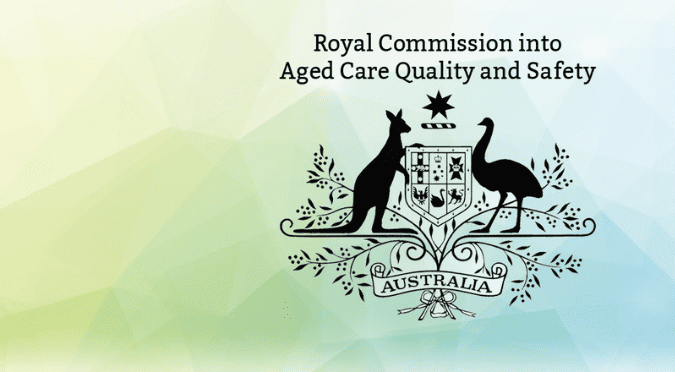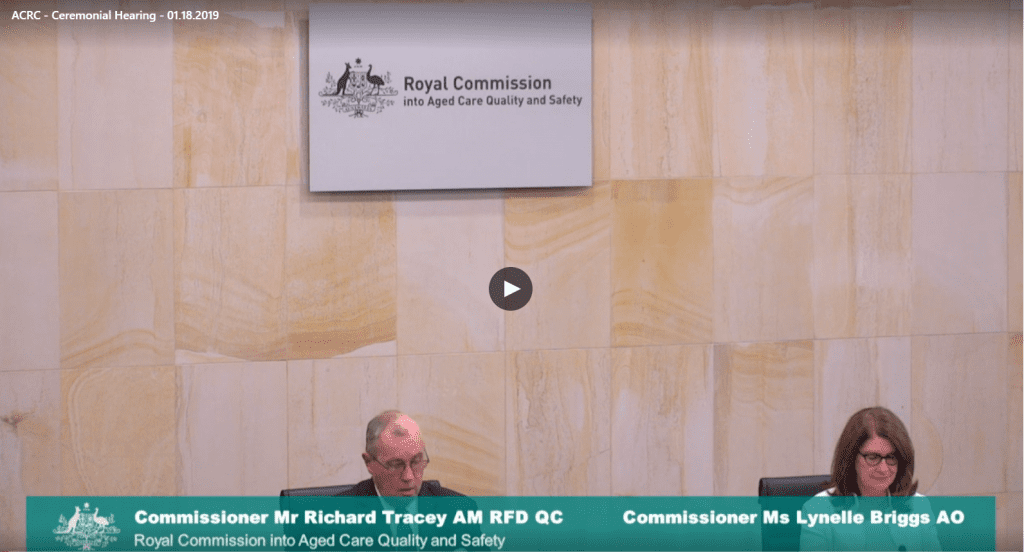Royal Commission in Aged Care Quality and Safety – February Update

New Quality and Safety Website
January saw the launch of the new Quality and Safety website. The site includes:
- Information for consumers
- News related to the Royal Commission
- Quality and safety education and events
The website features the resource pack that was recently sent to providers, which includes information about the Aged Care Quality and Safety Commission and the services offered.
Aged Care Royal Commission Preliminary Hearing
The preliminary hearing for the Royal Commission in Aged Care Quality and Safety took place on 18 January 2019, in Adelaide.
Dr James Popple, Official Secretary for the Royal Commission opened the hearing by reading the Letters Patent which outlined the Terms of Reference for the inquiry. Popple stated that the “contribution of older Australians should be recognised” and that they “deserve high quality care in a safe environment that protects their wellbeing and dignity.” He continued by reiterating the importance of creating national culture that respects ageing and older Australians. Popple argued that there are many positive examples of quality care including numerous dedicated staff however the Government must ensure that Australia has the best regulatory processes and policies, to protect the rights of all Australians receiving aged care services. Following his opening statement, Popple spoke about the responsibilities of the two appointed Commissioners, Richard Tracey and Lynelle Briggs including the provision of an interim report by 31 October 2019 and a final report including findings and recommendations by 30 April 2020.
Commissioner Tracey spoke about how the inquiry will investigate substandard care, instances of elder abuse as well as the board array of quality and safety issues both past and present in all forms of residential and community aged care services. Tracey outlined that the Commission will also look into young people in aged care facilities and dementia services however, will Exclude matters that have been sufficiently dealt with by civil or criminal proceedings. Tracey also stated that a web-based form has been developed to provide opportunity for anonymous feedback via the Royal Commission’s website. Public submissions can also be made via phone, email or post to ensure accessibility. Tracey most poignantly stated that “The hallmark of a civilised society is how it treats its most vulnerable people, and our elderly are often amongst our most physically, emotionally and financially vulnerable.”
Commissioner Briggs reinforced the goals of the inquiry which comes down to a sustainable future of aged care in Australia and a “world class caring system”. Briggs stated that this can be achieved if policies, regulations and practices are examined as the current system “may not be fit for purpose”. Briggs described that the Commission will engage with key stakeholders including consumers, government agencies and providers throughout the course of investigation. Providers have already been asked to provide information about substandard care, complaints, improving quality and safety, engaging with consumers, innovative models of care delivery and workforce investment.
The team of counsel assisting the Commission acknowledged the sizeable task before them which is further complicated by dementia and high health care needs of older Australians as well as issues raised for people with disabilities, including younger people in the aged care system. The first hearing will take place on February 11 2019 in which information will be presented about the challenges faced in the aged care system and evidence heard from those receiving services which was described as “central to this inquiry”. The Commission must now investigate the past to ensure that “real and tangible improvements can be made” says Dr Timothy McEvoy.
